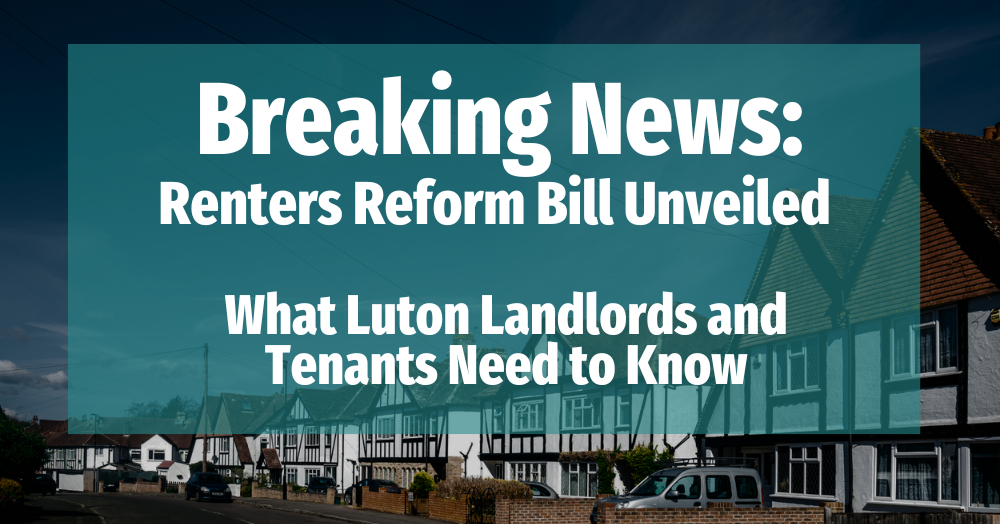The most critical piece of legislation affecting the private rented sector in England has been announced today in the Houses of Parliament.
The most critical piece of legislation affecting the private rented sector in England has been announced today in the Houses of Parliament.
The Renters Reform Bill, which has been long-awaited since its initial promise in 2019, encompasses a range of measures designed to enhance the quality of housing within the private rented sector while also offering protection to tenants against 'no fault evictions' and easing the process of keeping pets.
Many Luton Landlords have been eagerly anticipating the details of this bill, as it will provide them with much-needed clarity regarding new regulations, enabling them to plan accordingly.
Contrary to widespread concerns, this bill should not instigate alarm within the Private Rental sector. On the contrary, it aims to simplify the procedure for landlords to reclaim their properties from tenants engaged in anti-social behaviour or persistently failing to meet rent obligations.
If we delve deeper into the matter, it becomes apparent that its impact on landlords is less substantial than portrayed.
The bill involves replacing Section 21 with a bolstered Section 8, which still provides landlords with a means to regain possession of their properties.
In fact, this change makes it even easier for Luton landlords to reclaim their properties.
The introduction of a Private Renters' Ombudsman is expected to reduce the costs associated with disputes between tenants and landlords, while a new property portal will provide greater clarity regarding compliance.
Consequently, the bill does not deserve the label of a ‘Landlord Bashing Licence’ that some in the Press have given to it.
The pressing issue of the housing crisis cannot be ignored, as the sector currently harbours numerous substandard homes where tenants endure unacceptable living conditions.
However, the government must exercise caution to ensure that responsible landlords, who constitute a substantial majority, are not penalised for the actions of a minority of rogue operators.
Landlords have faced mounting scrutiny over the past decade. Maintaining the Private Rented sector as an attractive option for responsible landlords is crucial, significantly, as rental prices rise and not enough homes are being built.
With the implementation of this bill, the aim is to level the playing field for both tenants and landlords in England as the Bill endeavours to improve the overall quality of housing in the sector and alleviate concerns regarding no-fault evictions.
As more details of the proposed changes emerge and when these new rules will come into play (it is estimated it will be sometime in 2024), both landlords and tenants will be able to navigate the sector with increased confidence and certainty.

